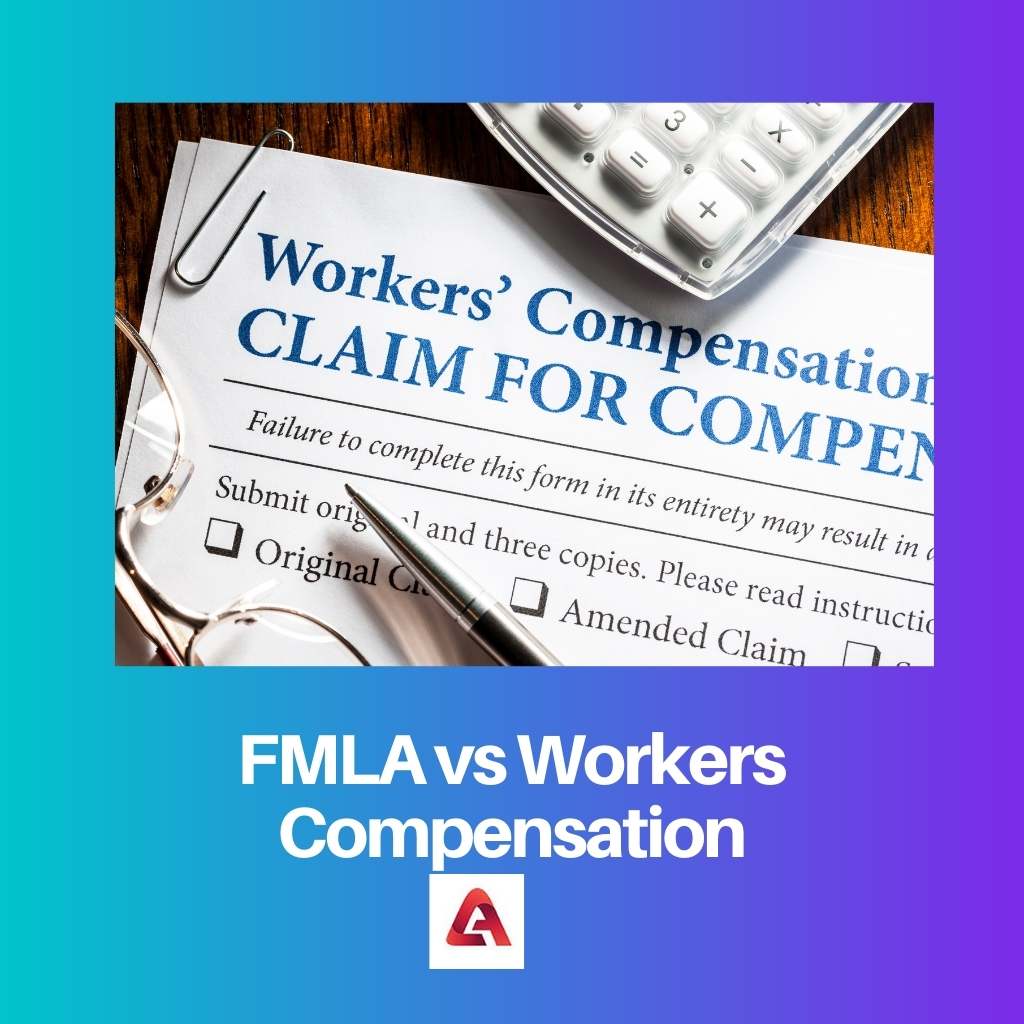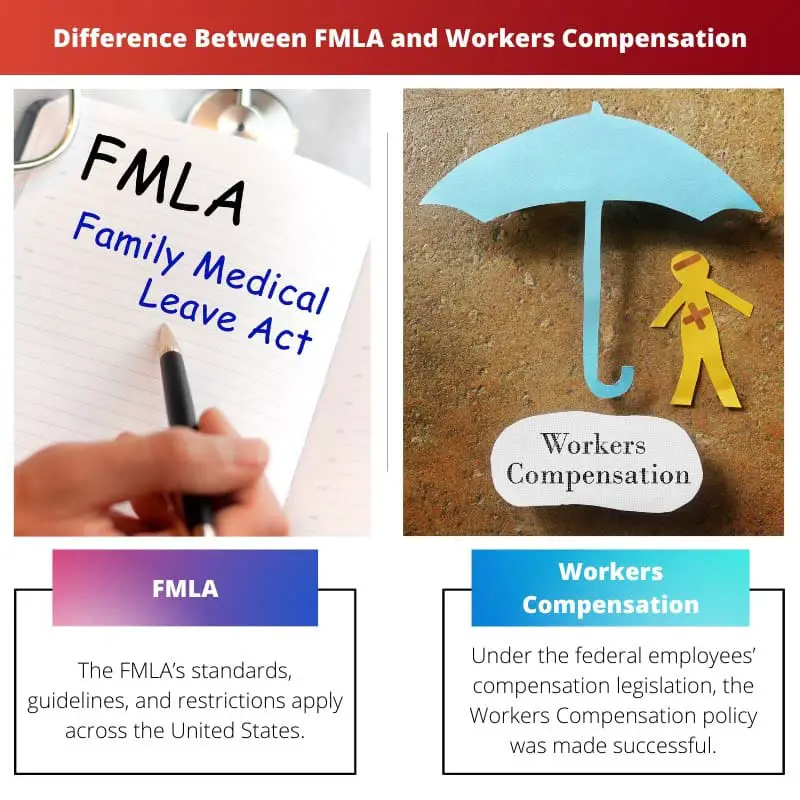Laws, insurance and policies made to protect workers and their family members are quite common worldwide.
The concerned government in power must provide adequate services, compensation and reimbursements to workers facing physical and health difficulties.
Key Takeaways
- The Family and Medical Leave Act (FMLA) provides eligible employees with unpaid, job-protected leave for certain family and medical reasons.
- Workers’ compensation is a state-mandated insurance program that compensates employees for work-related injuries and illnesses.
- FMLA protects an employee’s job during a temporary absence, while workers’ compensation covers medical expenses and lost wages due to a work-related incident.
FMLA vs Workers Compensation
FMLA stands for Family and Medical Leave Act and it allows qualifying employees or workers to take unpaid leave for up to twelve weeks within a year. Workers Compensation is a policy under the federal employees’ compensation legislation that allows federal workers unpaid leave up to six months.

The FMLA’s standards, guidelines, and restrictions apply across the United States. In 1993, the Federal Act was effectively passed.
FMLA allows qualifying employees or workers to take unpaid leave for up to twelve weeks within twelve months. Only those firms with a minimum of 50 employees can make use of the FMLA’s benefits.
Under the federal employees’ compensation legislation, the Workers Compensation policy was made successful.
The federal government is the only one who gets affected. On the other hand, state governments can make their laws or adhere to federal legislation.
Comparison Table
| Parameters of Comparison | FMLA | Workers Compensation |
|---|---|---|
| Applicable for | The whole of the United States of America | Only Federal employees of the USA. |
| Applicable on | Worker and his whole family | Only on the worker |
| Unpaid leave | 12 weeks/12 months | Up to 6 months |
| Passed under | Federal act in 1993 | Compensation act of federal employees |
| Eligible employees | Employers with a minimum of 50 employees | No such restrictions |
What is FMLA?
FMLA is a sort of leave that employees can take if they or their families need to take medical leave. The FMLA’s guidelines, standards, and regulations apply throughout the United States. In 1993, it was successfully passed under the Federal Act.
The FMLA statute allows qualifying employees or workers to take unpaid leave for a minimum of twelve weeks within twelve months.
FMLA allows employees to take time off to care for serious health difficulties in their families, including their parents, children, spouses, or themselves.
It also provides for a leave of absence in the event of the birth of a child or any other family emergency. Employers with at least 50 employees are only eligible for FMLA benefits.
Workers with physical and health problems must receive proper assistance, compensation, and reimbursements from the concerned government authority like this.

What is Workers Compensation?
Workers Compensation is a sort of compensation available to employees who are disabled or injured on the job or while on the working site. Under the federal employees’ compensation legislation, the Workers Compensation policy was successful.
Only the federal government is affected. On the other hand, state governments can make their laws or follow this one.
Under the Workers Compensation Law, injured workers can take up to six months of unpaid absence under this benefit.
In the event of an injury, the Workers Compensation law does not apply to the worker’s family members but only to the worker himself. Under this law, the worker is entitled to reimbursement for his treatment costs.
If a worker dies in an unexpected accident, the family is entitled to two-thirds of the worker’s wage as compensation. Under the Workers Compensation Act, there is no requirement for a minimum number of participating employees.
It does, however, apply to all employees.

Main Differences Between FMLA and Workers Compensation
- FMLA is a type of leave that the workers can avail in case of medical leaves for themselves or their families. On the other hand, Workers Compensation is a type of compensation availed by workers when they face any disability or injuries on the job or at the job location.
- The FMLA’s norms, rules and regulations apply to the whole US. This was successfully passed under the Federal act in 1993. On the other hand, the Workers Compensation policy was successful under the federal employees’ compensation act. This applies to the federal government only. However, it’s the choice of state governments that either can make their laws or can follow these laws only.
- Under the law of FMLA, eligible employees or workers can avail of unpaid leaves up to a minimum of twelve weeks in the time frame of twelve months. On the other hand, under the Workers Compensation Law, injured workers can avail of leave for up to six months under this benefit, in which they will be paid as usual.
- FMLA covers the leaves of the workers for attending to serious health issues of his family, including his parent, kids, spouse or himself. It also offers to leave for the birth of a newborn or in case of any family exigencies. On the other hand, under the Workers Compensation law does not apply to the worker’s family members but only to himself in case of injuries. Under this law, the worker can reimburse the amount he spent on his treatment. If the worker dies in a sudden accident, two-thirds of the worker’s salary is also given to the family as compensation.
- Those employers who have a minimum of 50 employees working under them can only avail of the benefits offered under the FMLA. On the other hand, under the Workers Compensation law, no minimum threshold for the number of participating employees is not required. However, it applies to all employees.




